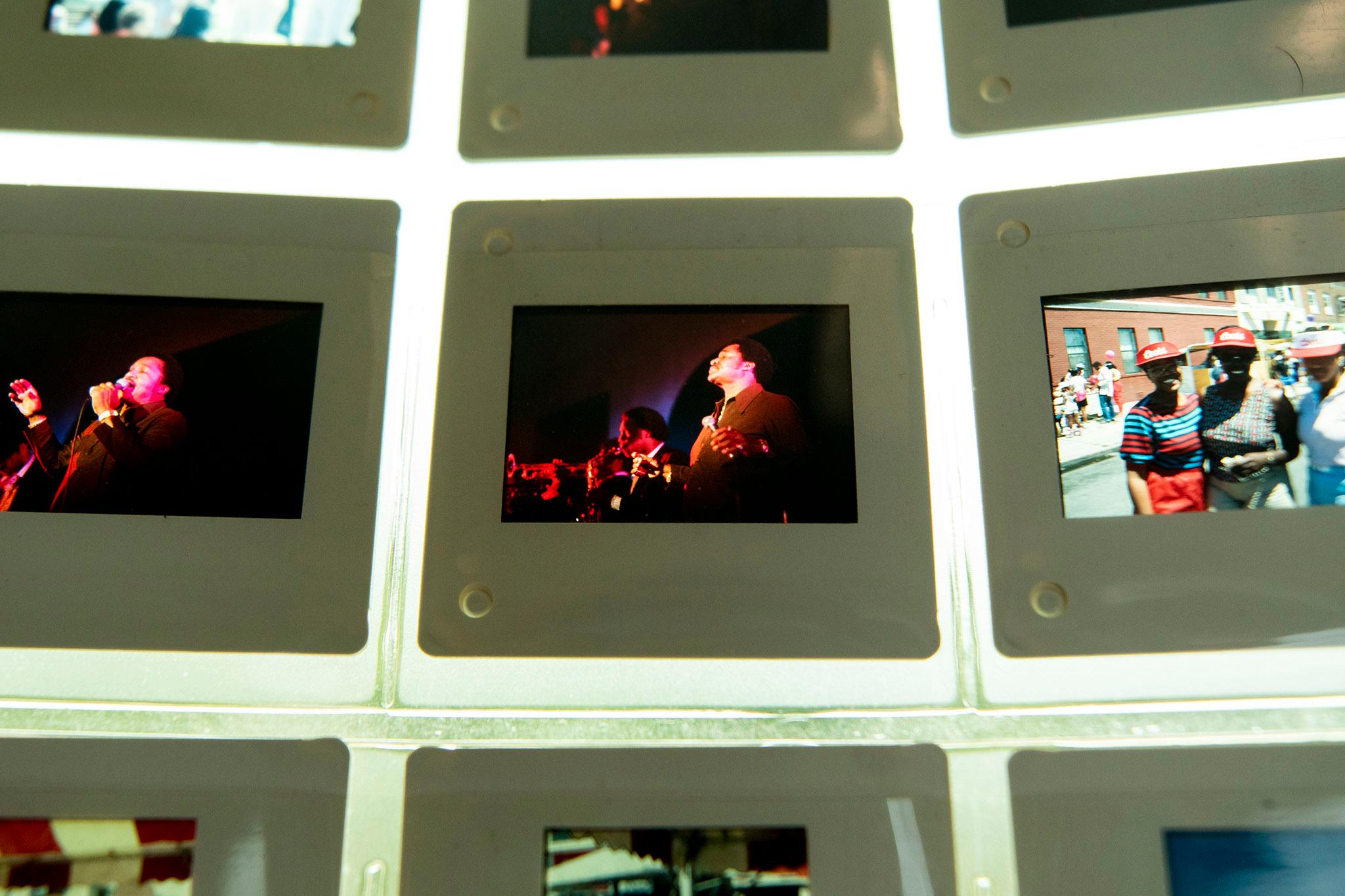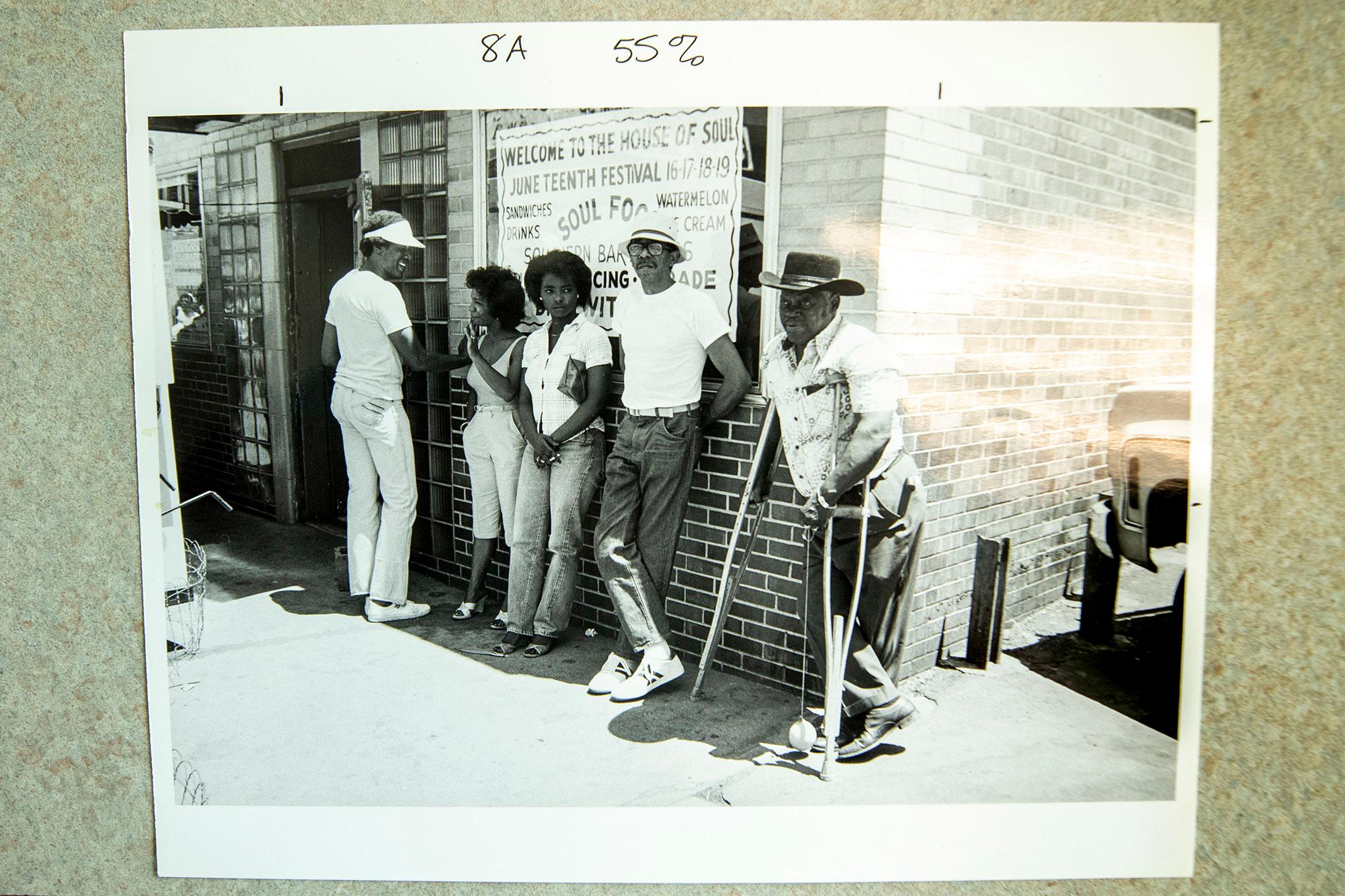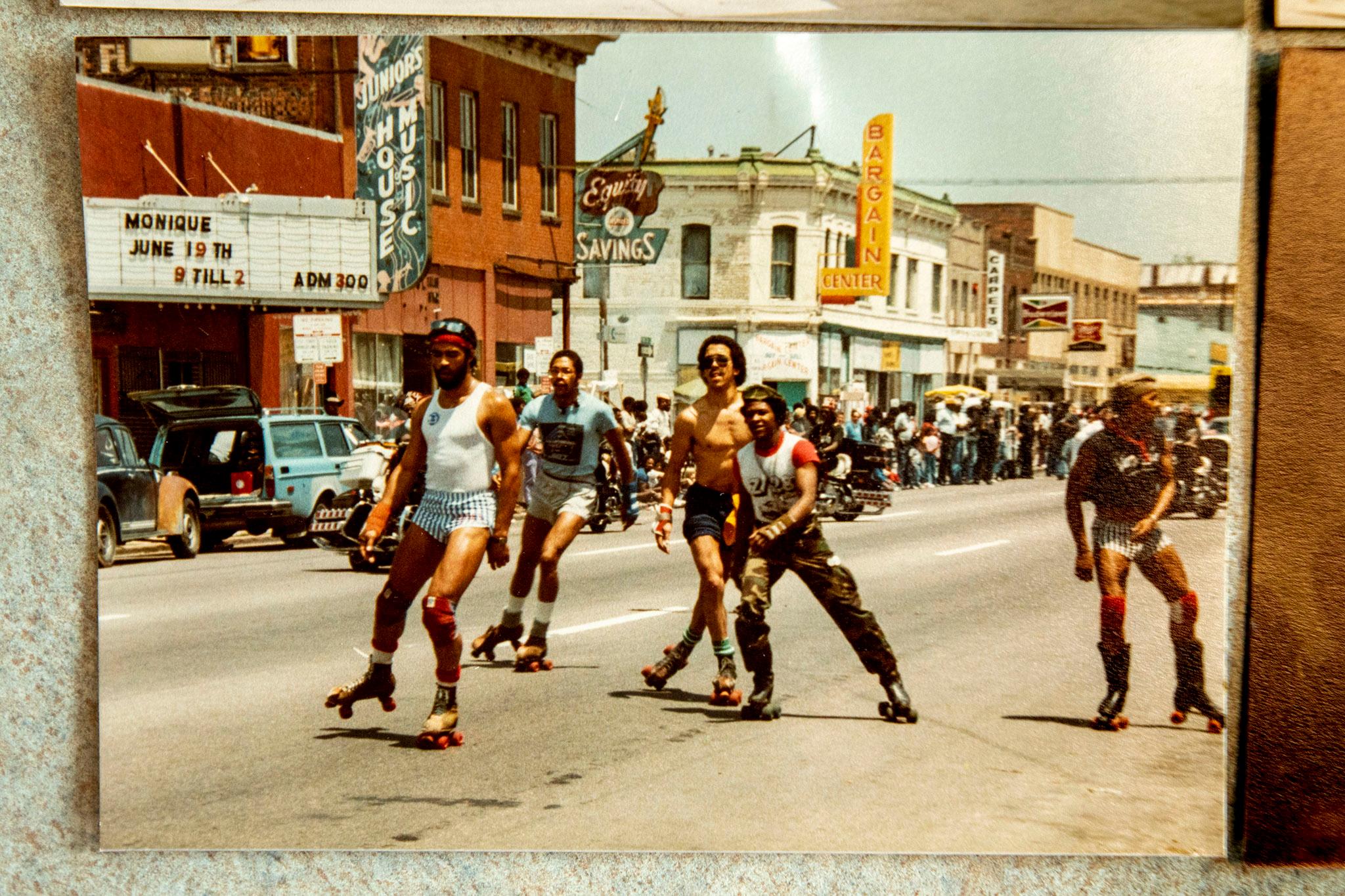On Thursday, President Joe Biden signed a bill into law making Juneteenth a federal holiday. In the weeks leading up to that moment, news outlets published all kinds of stories that drew attention to a general lack of understanding about the emancipation celebration - explainers like "Why Juneteenth isn't taught in schools" and "Haven't heard of Juneteenth? Here's what you need to know."
Terry Nelson, archivist and historian at Welton Street's Blair-Caldwell African American Research Library, said of course the country needs to have these 101 conversations.
"It's not a surprise in this culture, come on. This is the way it is when it comes to being Black and white. Our things are hidden. And all the sudden, when they come out, exciting," she said.
But she expects plenty of Denverites need no introduction. This city was ahead of the curve on Juneteenth, she told us.
Denver is gearing up for a street fair and parade tradition Saturday that dates back at least 55 years. Nelson and her colleague Annie Nelson (no relation) were kind enough to help us find some of that history.
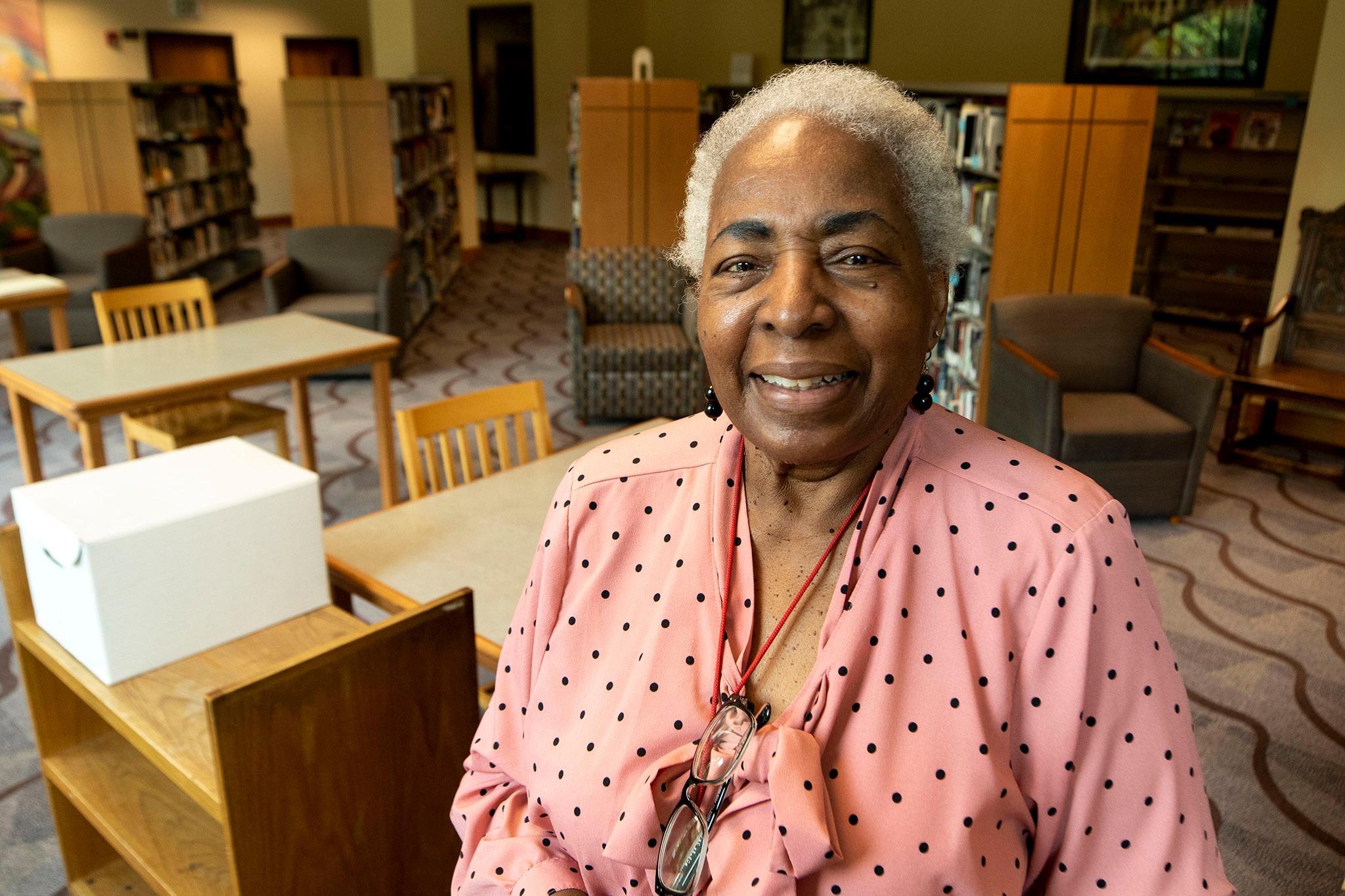
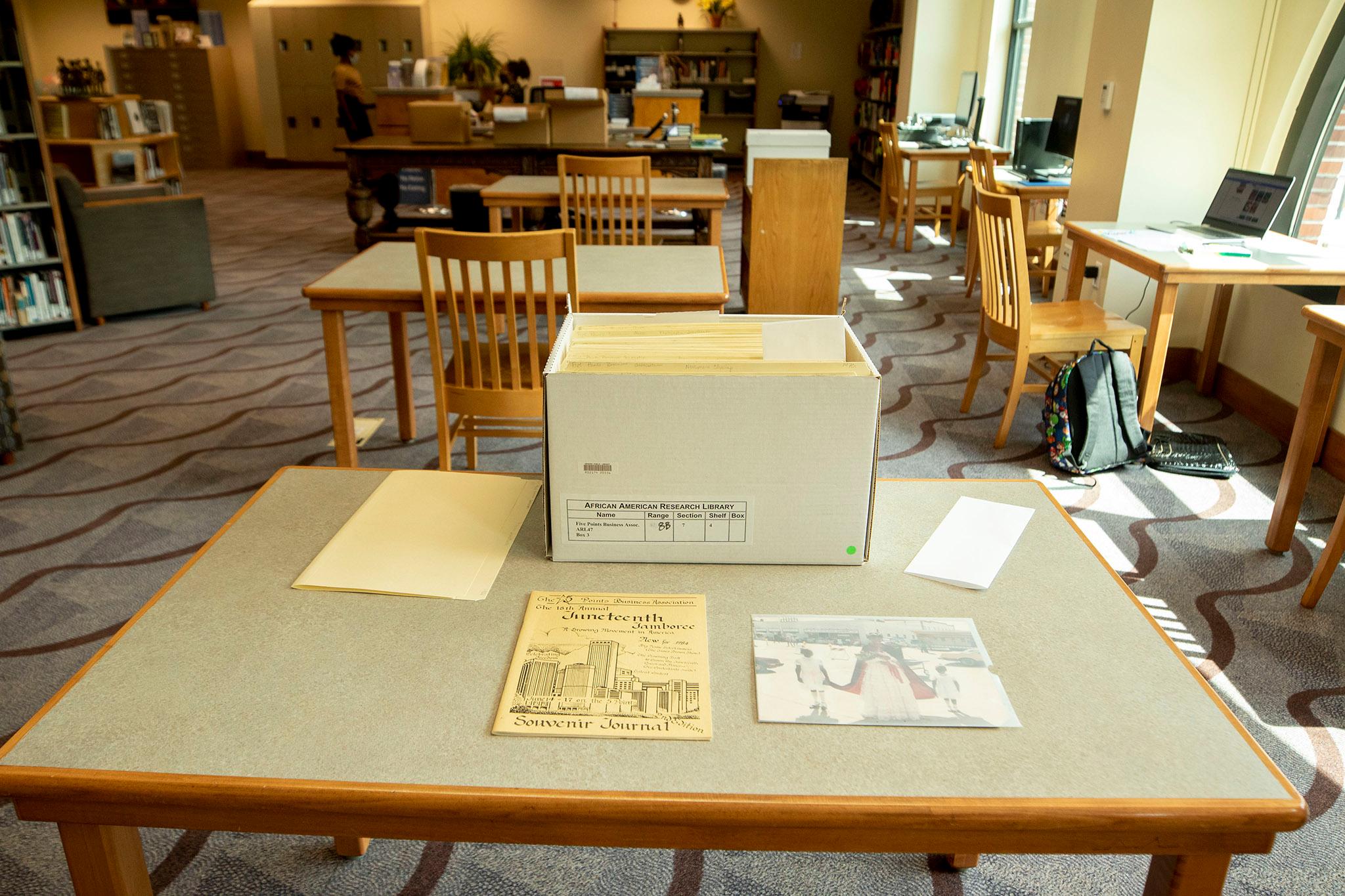
Denver's first official Juneteenth celebration began in 1966.
The way Terry Nelson tells it, Otha P. Rice Sr. brought knowledge of the celebration with him from Texas. He moved to Colorado in the 1950s and opened a bar, Rice's Tap Room, where he first gathered people to celebrate the moment when enslaved people in Galveston learned they had been freed - two years after the Emancipation Proclamation.
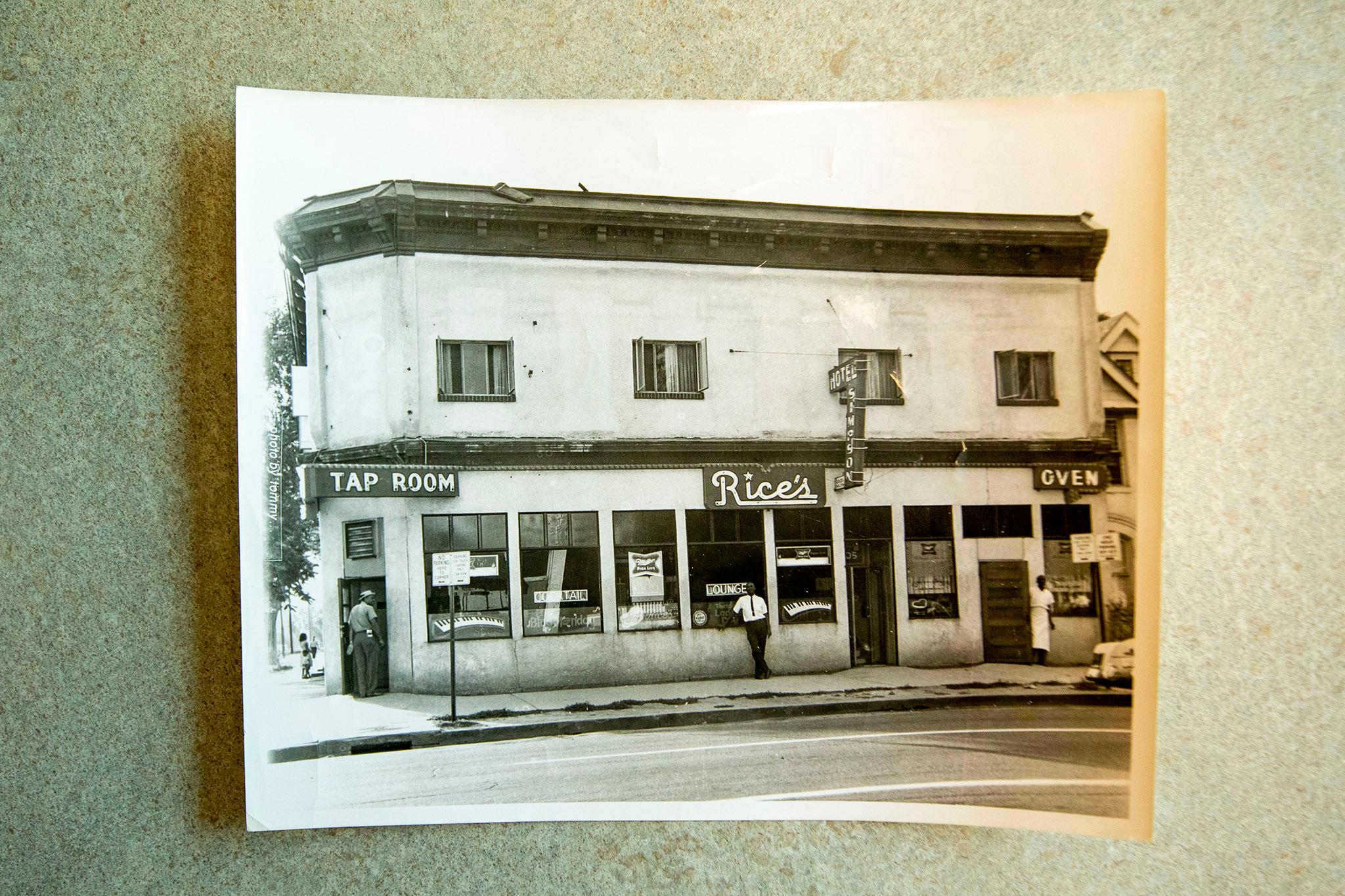
Nelson said events in those early years were small and loosely organized. But Rice, who became known as the "father of Juneteenth," began to pull more and more people into his orbit. Big Al, who ran a restaurant on 26th Avenue, threw in his support as Jim "Dr. Daddio" Walker helped spread the word through KDKO, his AM radio station. Then, Nelson said, the Five Points Business Association took Juneteenth to a new level as they attempted to drive dollars toward Welton Street.
In 1983, an estimated 60,000 people showed up to the celebration.

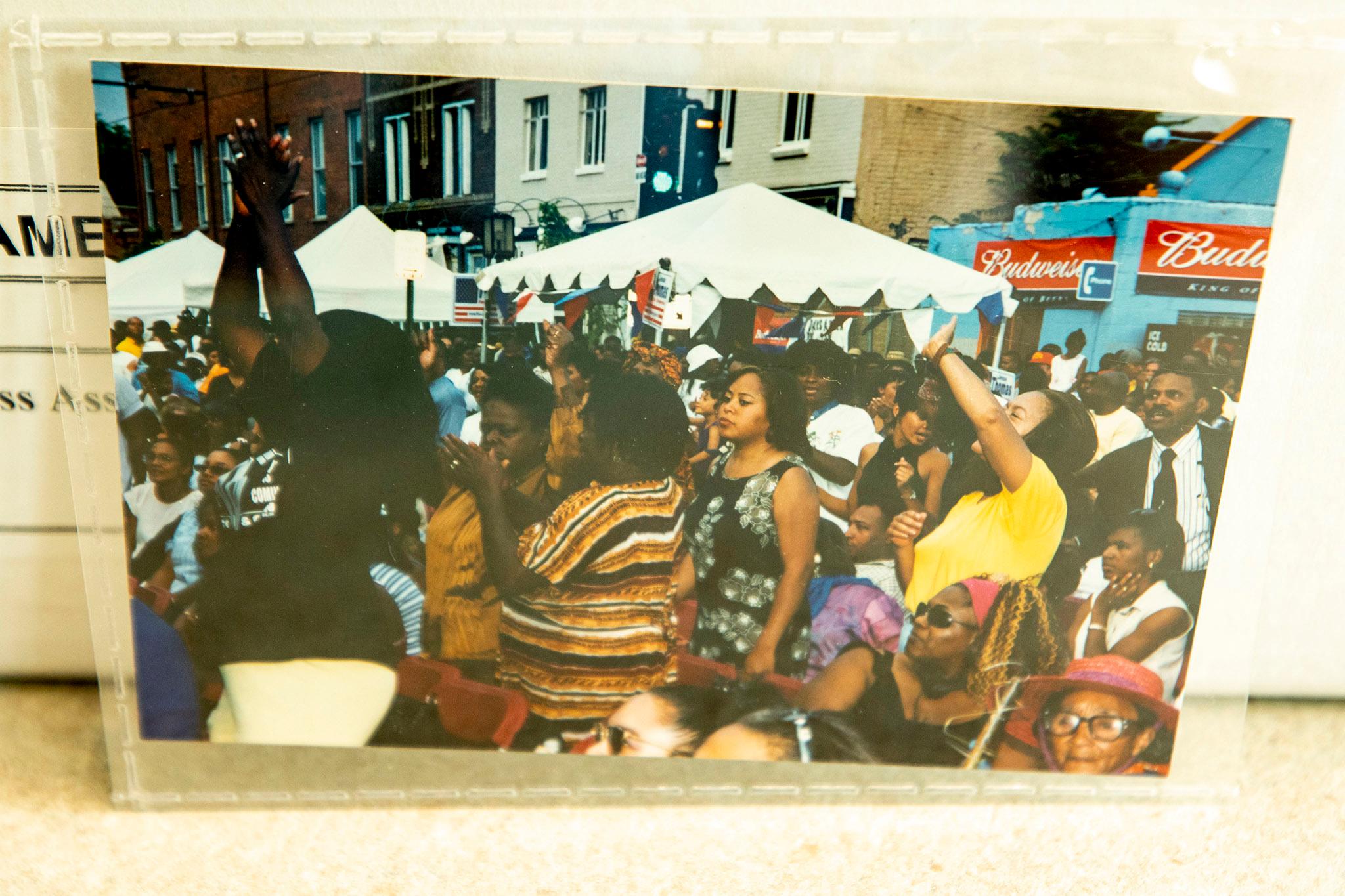
"It has gone from just a little parade to a huge massive parade," Nelson told us, "to the point that the mayors of the city have all issued proclamations."
While the city made Juneteenth a "commemorative holiday" this year, Mayor Michael Hancock was far from the first to take notice. We found a proclamation signed by Mayor Federico Peña in 1986 in Blair-Caldwell's archives. Officials from the city all the way up to U.S. Congress wrote statements included in those materials.
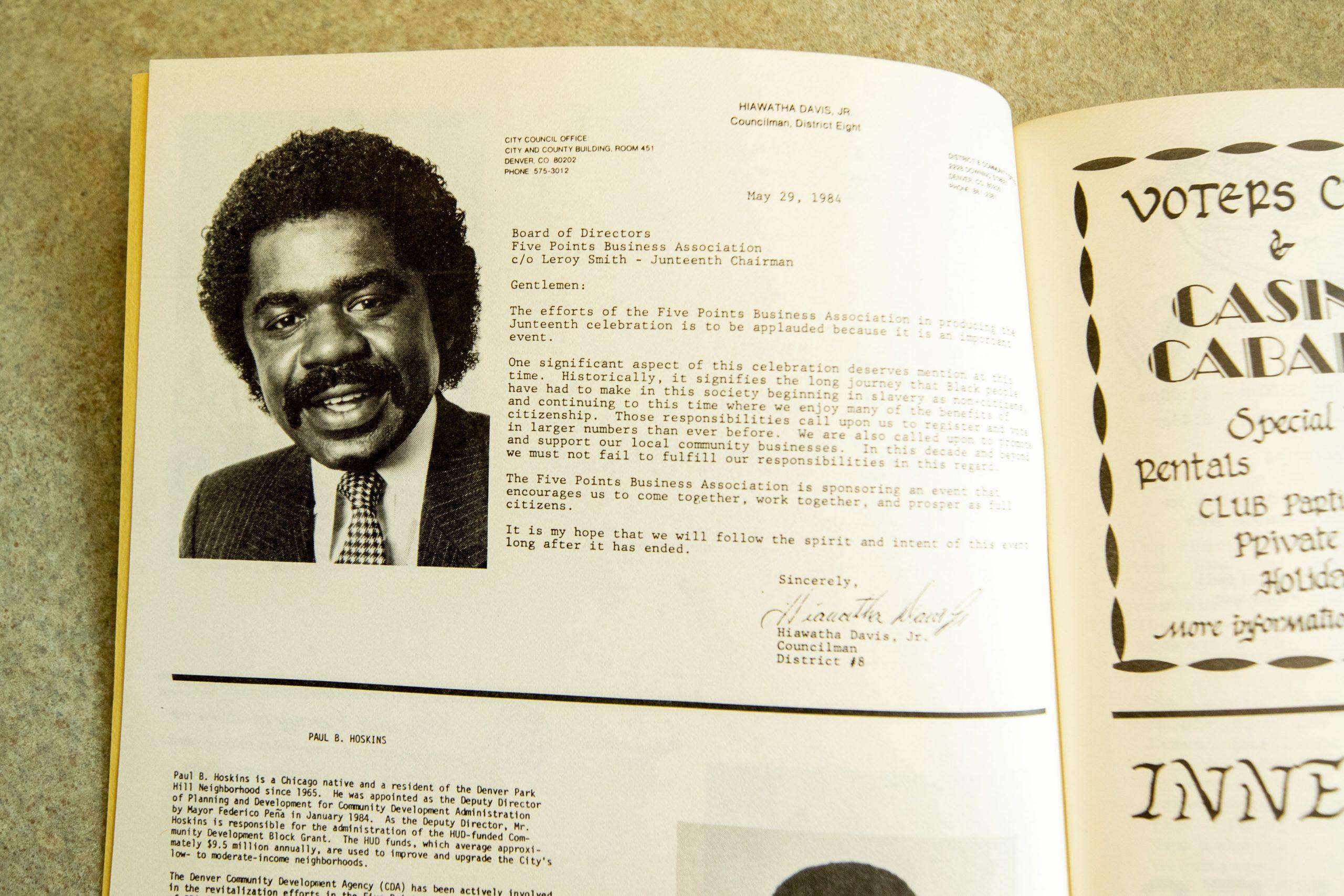
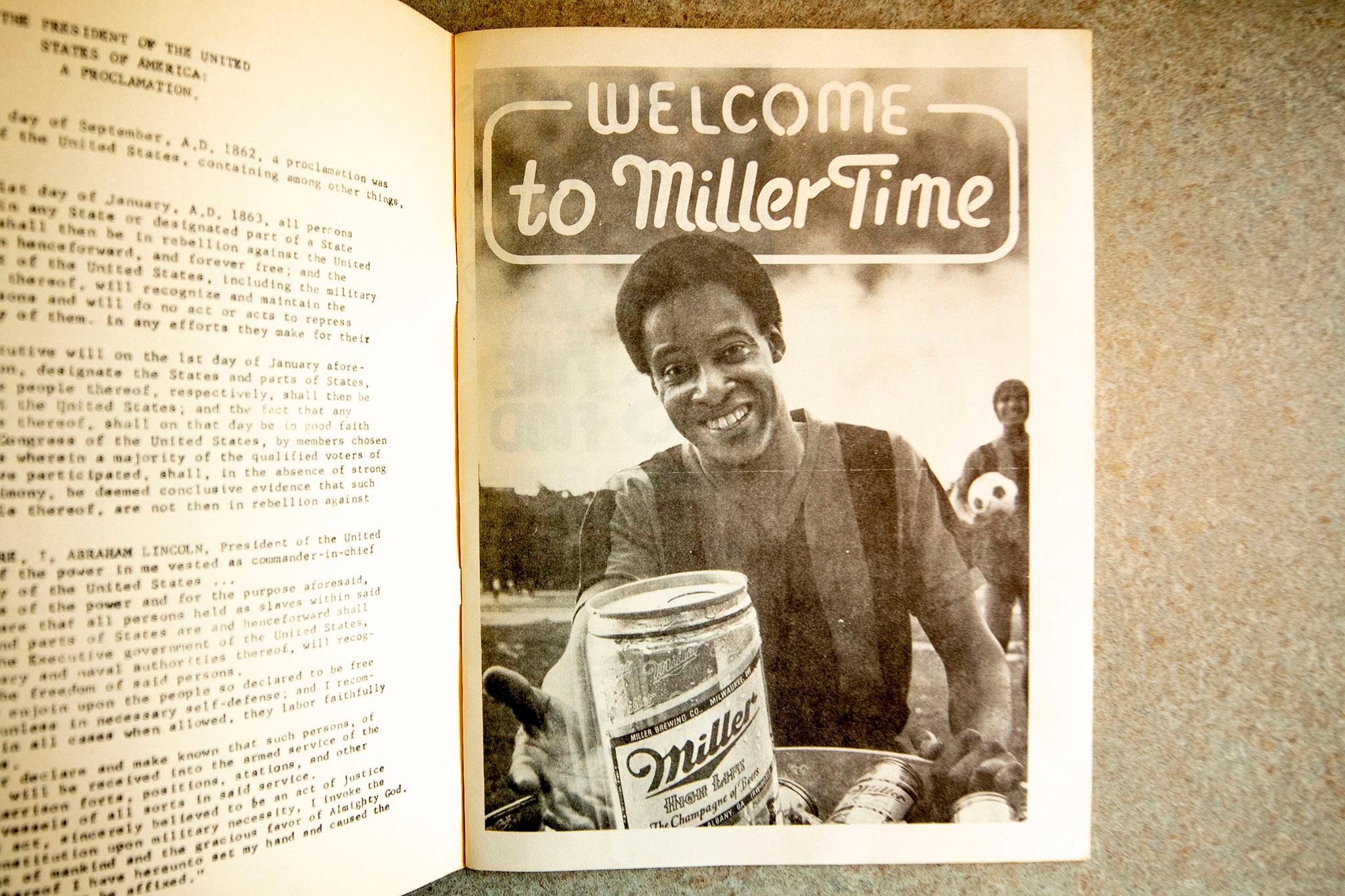
Some of those words showed politicians' own failure to grasp what Juneteenth meant.
"This celebration recognizes a very significant point in American History, the signing of the Emancipation Proclamation," Governor Dick Lamm wrote in 1984, the year James Brown played the Casino Cabaret. "On behalf of all Coloradans, best wishes for a productive celebration."
Other messages in the archive show that Juneteenth's champions felt it needed to grow in the country's collective mind.
Leroy Smith, festival coordinator, hoped for a "bigger and better" celebration in his public address in 1984. But others wrote about a different kind of growth.
Hiawatha Davis, Jr., then council member for Denver's District 8, penned a short letter for the 1984 program that urged his community to take their civic responsibilities seriously.
"(Juneteenth) signifies the long journey that Black people have had to make in this society," he wrote. "Those responsibilities call upon us to register and vote in larger numbers than ever before."
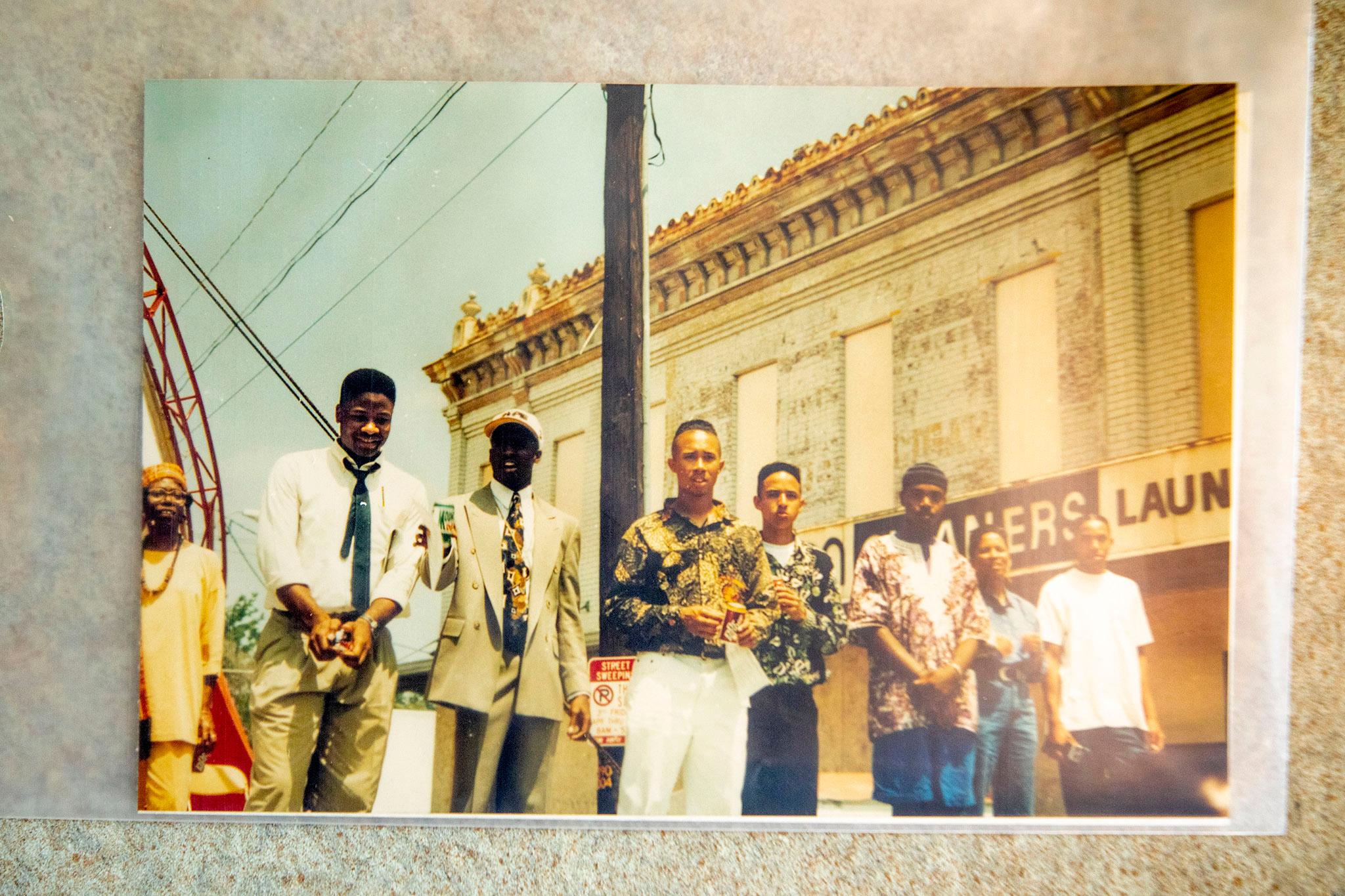
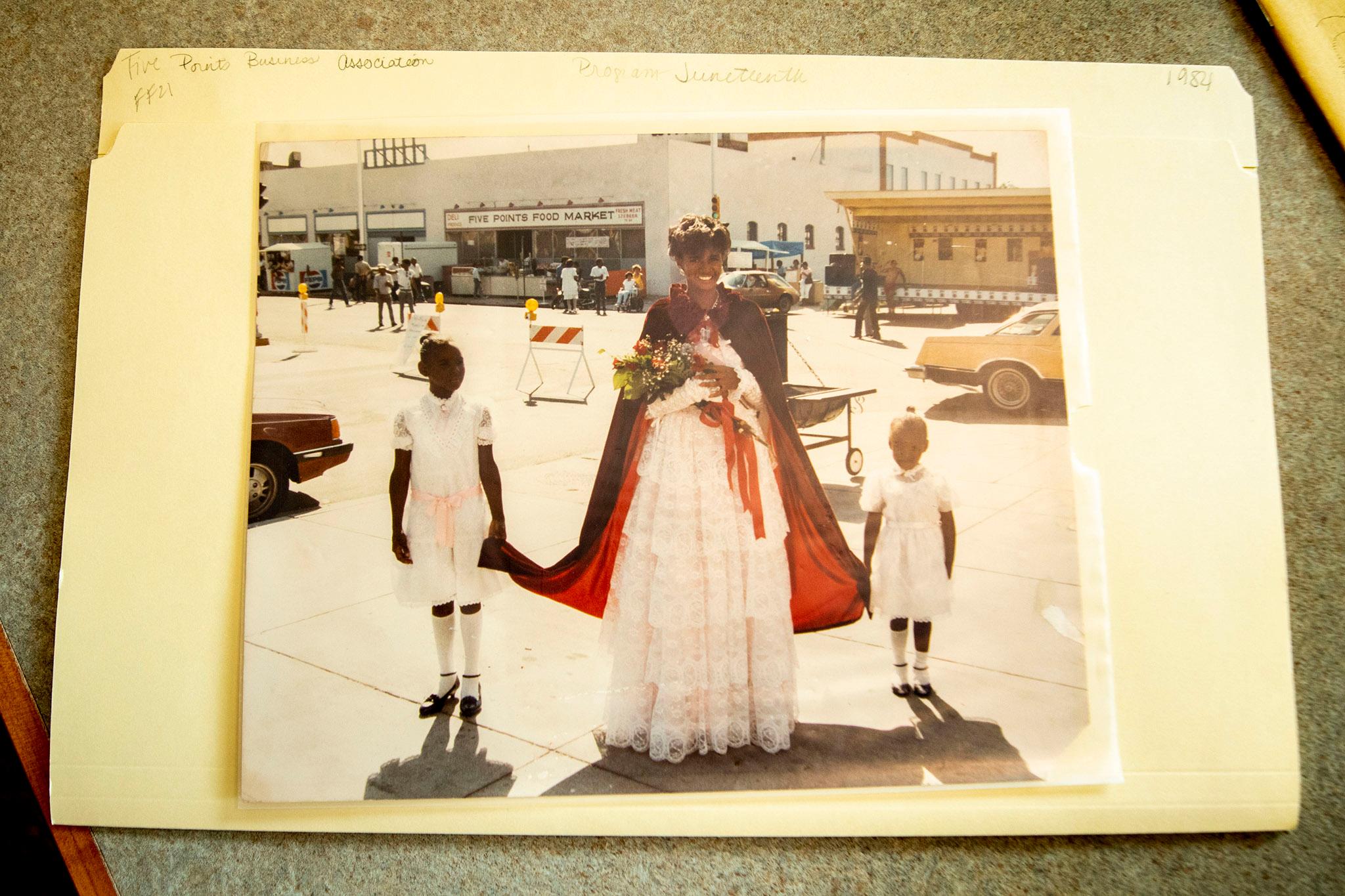
In her essay about Juneteenth's origins, included in the 1983 program guide, CU Denver business student Ciarre Cinque ended with a new focus.
"The issue of slavery has been settled by Executive Order and by battle," she wrote. "It is now the economic arena to which we must turn."
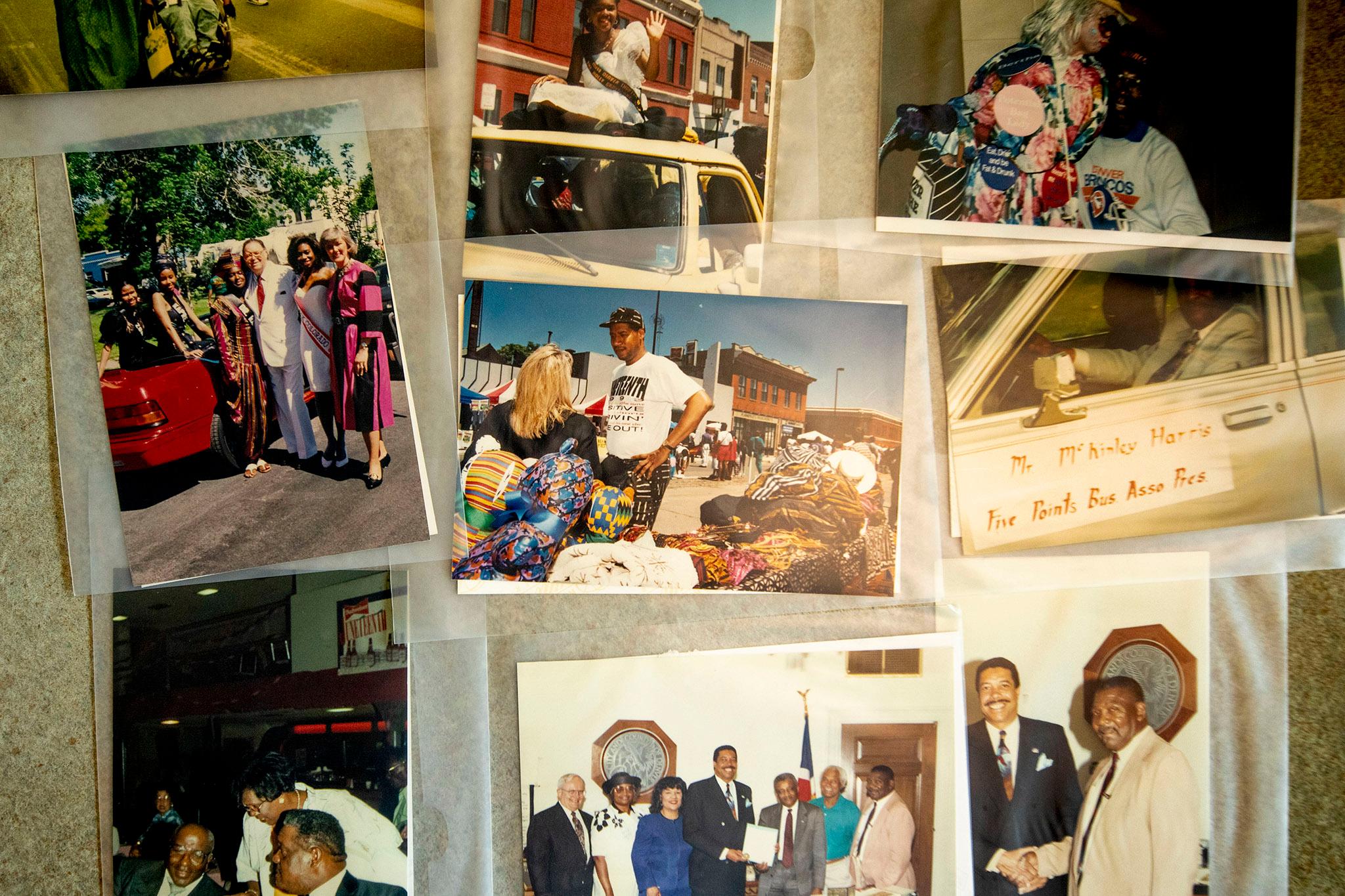
Source: Blair-Caldwell African American Research Library/Five Points Business Association records
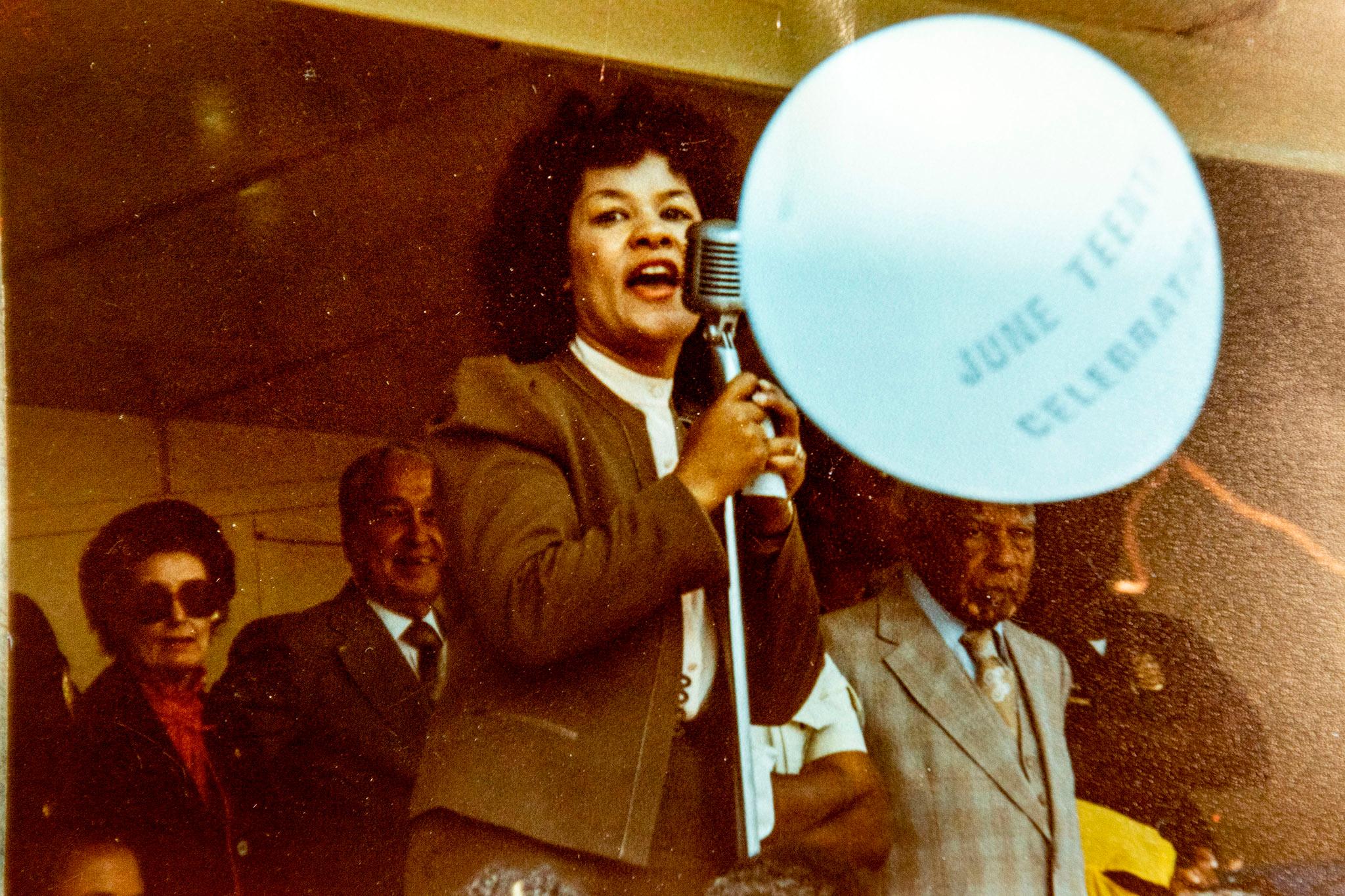
And in 1986, State Rep. Wilma Webb, who had recently succeeded in making Martin Luther King Jr. Day a holiday in Colorado, seemed to tie these ideas together.
"I am sure that the Community is extremely grateful to you for keeping this important holiday in the American forefront. All citizens need to know its historical significance," she wrote. "I commend the Five Points Business Association for keeping the spirit and celebration of Juneteenth alive and growing. Juneteenth's inherent meaning is a reflection of the past, a responsibility to the present and a commitment to the future."
